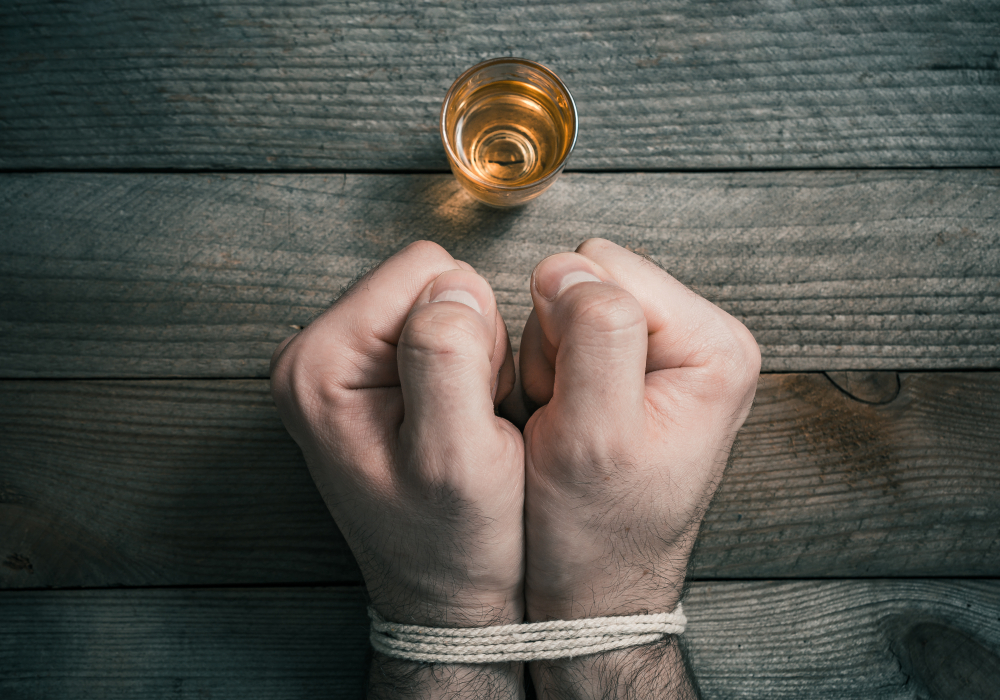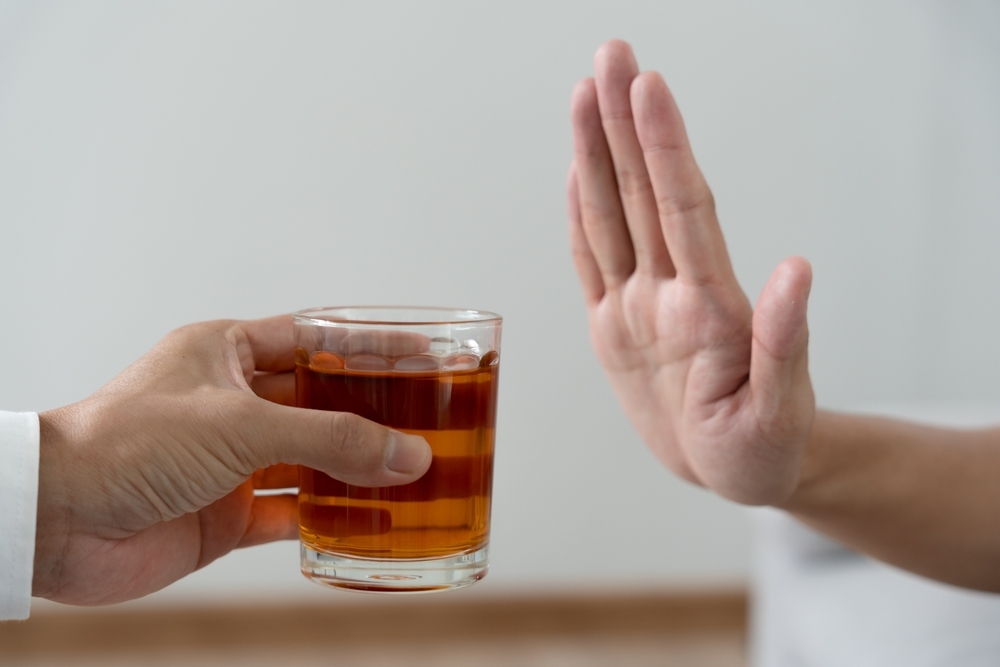Last Updated:
March 28th, 2025
Quitting alcohol is tough. If it were easy, no one would struggle with it. One of the hardest parts of overcoming alcohol addiction is the withdrawal process, which often catches people off guard. Many try to quit without realising how challenging this stage can be, making it even harder to stay on track. But with the right planning and mindset, it’s something you can get through.
This guide walks you through what to expect during alcohol withdrawal, moment by moment and how to get the support you need to make it through safely.

Why does alcohol withdrawal happen?
Many people have heard about alcohol withdrawal, whether through stories, movies or personal experiences. But what exactly is alcohol withdrawal, and why does it happen?
Alcohol withdrawal happens when the body, which has become used to regular alcohol intake, struggles to adjust after drinking suddenly stops. Over time, alcohol affects the brain’s neurotransmitters, especially gamma-aminobutyric acid (GABA), which helps calm the nervous system. It also affects glutamate, which stimulates the brain. Alcohol suppresses glutamate and enhances GABA, making the body more relaxed.
When drinking stops, the body takes time to readjust. Since alcohol was artificially boosting GABA and suppressing glutamate, the brain suddenly has too little of one and too much of the other. This imbalance causes overstimulation, leading to withdrawal symptoms that can range from mild to severe.
Physical symptoms of alcohol withdrawal
The physical symptoms of alcohol withdrawal can vary depending on how much and how often someone drinks. Common symptoms include:
- Shaking or tremors, especially in the hands
- Sweating and clammy skin
- Nausea, vomiting or loss of appetite
- Headaches
- Increased heart rate
- High blood pressure
- Fever and chills
- Seizures in severe cases
Psychological symptoms of alcohol withdrawal
The psychological effects of withdrawal can be just as distressing as the physical ones. These can include:
- Anxiety or panic attacks
- Depression or mood swings
- Restlessness and irritability
- Difficulty concentrating
- Confusion or disorientation
- Insomnia or vivid nightmares
- Hallucinations in severe cases
Alcohol withdrawal timeline
So, when do these withdrawal symptoms begin and how do they unfold? Do they all appear at once? Not exactly. Withdrawal follows a progression, with symptoms developing over time rather than hitting all at once. To provide clarity, we have outlined a step-by-step timeline of what to expect during alcohol withdrawal.
Hour by hour: the first 24 hours
In the first few hours after your last drink, your body begins to react. If alcohol has been a regular presence in your life, its absence will not go unnoticed. Anxiety and shakiness are often the first signs that withdrawal has begun, with headaches and sweating creeping in as your system adjusts.
By the 12-hour mark, blood sugar levels may drop, leaving you dizzy or irritable. Some people struggle to sleep, while others experience nausea or mild hallucinations. As your body works to restore balance, symptoms can feel unpredictable.
At 24 hours, withdrawal tends to peak. Cravings may be intense, mood swings can hit hard, and physical discomfort may feel overwhelming. If you have been drinking heavily, this is when severe withdrawal symptoms can start, which is why seeking support is important if you feel unsafe.
The benefits of completing this stage
The first day is often the hardest, but every moment without alcohol is a step toward recovery. Your body is already working to heal, even if it does not feel that way yet. Pushing through this stage means you are on your way to breaking alcohol’s hold over you, and with the right support, the worst symptoms can be managed safely.
Day by day: the first week
Your nervous system is still adjusting over the next few days. The first 48 hours can bring intense cravings, and for those at risk of severe withdrawal, confusion and tremors may appear. While not everyone experiences dangerous symptoms, listening to your body and seeking help if something feels wrong is important.
By day three, physical symptoms like nausea and headaches often start to settle, but anxiety and irritability may linger. Some people struggle with sleep, while others feel emotionally drained. This is a vulnerable stage, as the idea of drinking again might seem tempting just to make the discomfort stop.
By the end of the first week, most of the physical symptoms will have faded, though cravings can still be strong. Emotionally, you might feel like you are on a rollercoaster, but you are also beginning to experience moments of clarity and relief.
The benefits of completing this stage
Reaching the end of the first week is a massive achievement. The worst of withdrawal is behind you, and your body is beginning to function without alcohol. You might not feel like yourself just yet, but every day that passes brings more stability. If you have made it this far, you have already overcome one of the hardest stages.
Week by week: the first month
As the second week begins, sleep patterns may still be unpredictable. Some people feel a surge of energy, while others experience emotional ups and downs as their brain chemistry rebalances. It can be frustrating to feel like your mood is out of your control, but this phase is temporary.
By week three, your liver is functioning more efficiently, and your body is detoxing properly. You might notice clearer skin, improved digestion or a healthier appetite. Emotionally, you may feel a sense of relief, but you might also feel exposed now that alcohol is no longer dulling your emotions.
By week four, physical cravings often begin to fade, but the habit of drinking can still feel ingrained. You might not miss alcohol itself, but you may catch yourself missing the routine of it. Social situations can also be a challenge as you navigate how to enjoy events without relying on a drink.

The benefits of completing this stage
One month without alcohol is a major milestone, and the benefits are starting to show. Your risk of liver damage and high blood pressure is lower, and your sleep and energy levels are stabilising. You are thinking more clearly and proving to yourself that life without alcohol is not only possible but also better.
Month by month: long-term changes
By three months, your brain chemistry has significantly improved. Dopamine levels are balanced, making your moods more stable. Many people find that their anxiety and depression start to ease, and motivation to engage with life returns.
By six months, your immune system is stronger, your skin is healthier, and if alcohol leads to weight gain, you might notice changes in your body. Social situations may feel easier, and your relationships will improve now that you are more present.
By one year, alcohol is no longer a major thought in your daily life. Your risk of alcohol-related health issues is much lower, and mentally, you have developed new habits that make sobriety feel natural. Rather than just quitting alcohol, you have built a life that does not rely on it.
The benefits of completing this stage
Reaching the one-year mark is more than just a personal victory. It is a transformation. Your body is healthier, and your confidence in yourself is stronger than ever. At this point, you have done something that will improve your life in ways you may not have even expected.
Should I attempt alcohol withdrawal alone?
If your alcohol use has been heavy or long-term, going through alcohol withdrawal alone can be challenging and, in some cases, dangerous. Symptoms can develop at different stages, making the process unpredictable. This is why many choose an alcohol rehab programme for professional support.
At UKAT, our alcohol rehab programme provides care at every stage of alcohol detox, ensuring a safe and supportive environment where trained professionals can ease discomfort and guide you through withdrawal. But recovery goes beyond detox. Alcoholism affects both the body and mind, which is why our programme includes therapy and holistic treatments to help you address the psychological aspects of alcohol addiction.
Giving up alcohol is not just about removing it from your life. It is about rebuilding a future where it no longer controls you. If you are struggling with alcohol withdrawal or wondering how to reduce alcohol consumption safely, reaching out for help could be the most important step forward.
(Click here to see works cited)
- Canver BR, Newman RK, Gomez AE. Alcohol Withdrawal Syndrome. [Updated 2024 Feb 14]. In: StatPearls [Internet]. Treasure Island (FL): StatPearls Publishing; 2025 Jan-. Available from: https://www.ncbi.nlm.nih.gov/books/NBK441882/


